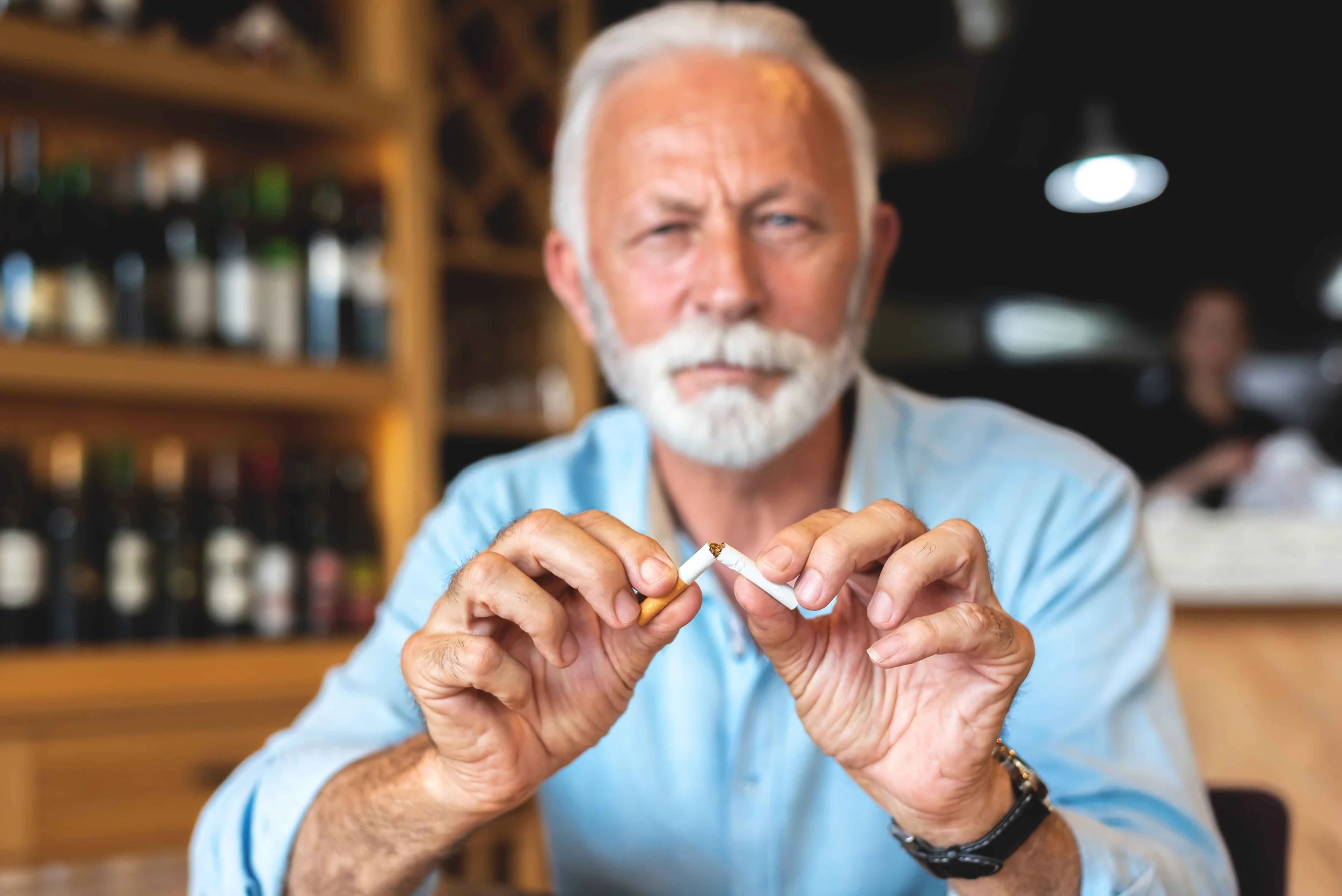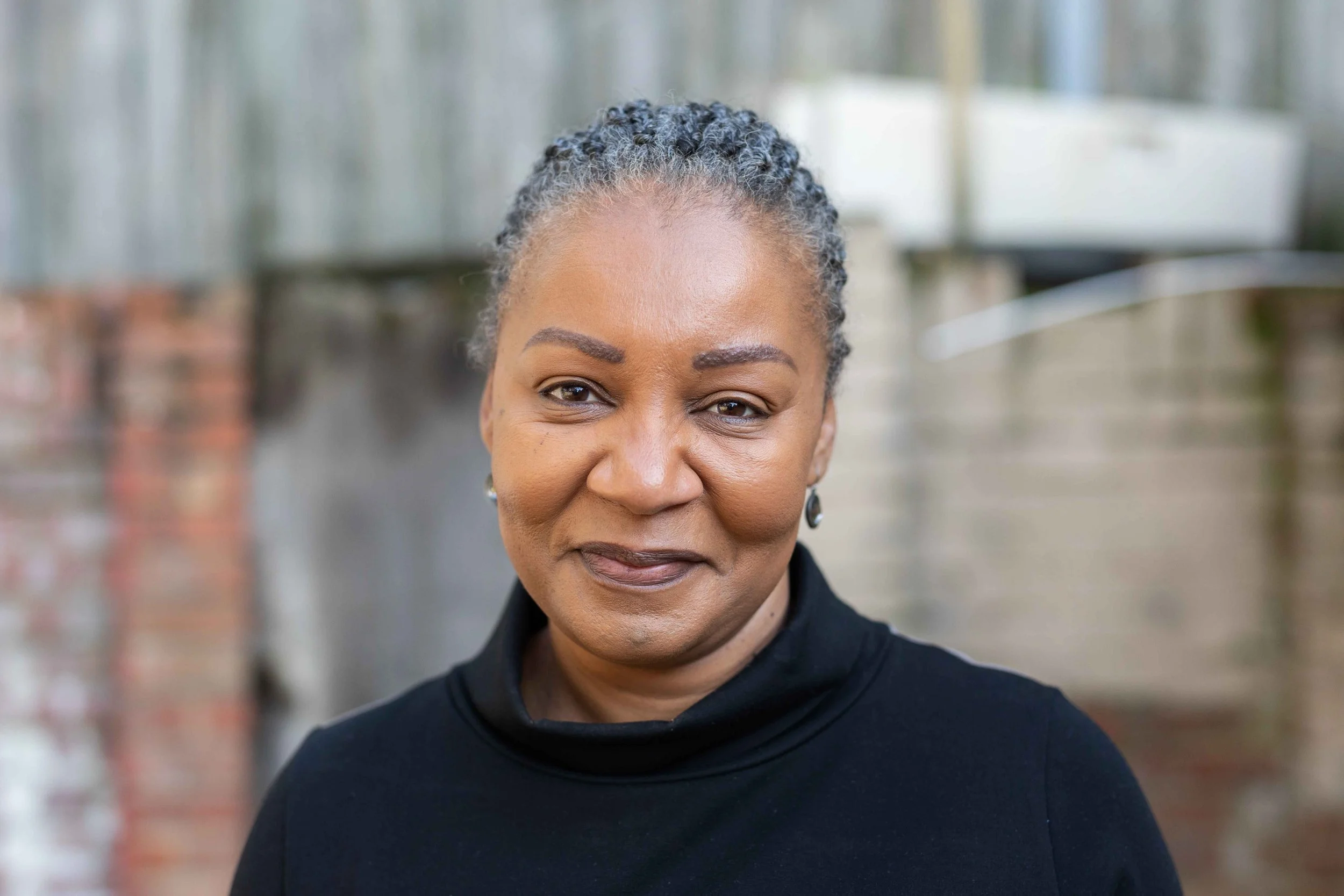How to Quit Smoking as An Older Adult
Smoking Among the 50+ Population
About 8% of older adults smoke, yet they are less likely to try to quit than younger adults, according to the Centers for Disease Control and Prevention. The effect of smoking can be seen throughout your body. Learn more about how smoking affects your health and how best to quit smoking as an older adult.
What Is Chain Smoking?
Chain smoking refers to the habit of rapidly consuming cigarettes one after another. There may be only brief breaks between cigarettes. In many cases, people light one cigarette with the embers of the previous one. Chain smoking increases the overall number of cigarettes you smoke, which significantly increases risk to your health.
Smoking’s Health Effects
Cigarette and cigar smoke include hundreds of chemicals that act as toxins in the human body. Smoking affects nearly every organ and body system.
What Does Smoking Do To Your Body?
Lungs and Respiratory System
Inhaling cigarette smoke irritates your airways and lungs. It damages the tiny hair-like structures called cilia that are responsible for clearing mucus and debris from the lungs. This makes it more difficult to breathe.
Cardiovascular System
Smoking directly increases your risk of heart disease by causing high blood pressure and increased heart rate. This increases the strain on your heart. Smoking also promotes the buildup of fatty deposits in the arteries, a condition called atherosclerosis. Collectively, these processes make it more likely that you will have a heart attack or stroke.
Cancer
Cigarette smoke contains carcinogens, chemicals that are known to cause cancer in humans. While most people think of smoke causing lung cancer, it actually increases risk of cancers throughout the body. Smoking damages DNA, triggering uncontrolled cell growth that leads to cancer. Smoking has been associated with throat, mouth, esophageal, bladder, and pancreatic cancers.
Immune System
Smoking affects the way your immune system works, making you less effective at fighting infections. This could leave you vulnerable to diseases like the flu or COVID-19.
Oral Health
Smoking negatively affects oral health. It is a leading cause of gum disease, tooth loss, and oral cancer. Each of these things become more likely as you age due to weakening bones and gum tissue health, making it important to quit smoking to prevent irreversible damage.
Skin and Overall Appearance
Smoking accelerates the skin’s natural aging process. This can lead to more wrinkles, yellowing teeth, and a dull, gray complexion.
Why Is Smoking Bad For You?
Smoking is bad at any age, but its effects accumulate the longer you smoke. Many people who smoke tobacco products as older adults started smoking at a young age. Following are some of the reasons that smoking is bad for your body:
Higher risk of chronic diseases. Smoking increases risk for a variety of chronic diseases, including heart disease, stroke, and respiratory disorders. Age also increases risk for these diseases, meaning that smoking as an older adult can compound your risk.
Reduced lung function. As we age, our lung functioning declines. Smoking directly affects respiratory health. It increases the risk of conditions like chronic obstructive pulmonary disease (COPD) and lung cancer.
Weakened immune system. Aging weakens the immune system's ability to fend off infections. Smoking further impairs immunity, making older adults more susceptible to respiratory infections, including pneumonia, which can be life-threatening.
Poorer wound healing. Because smoking affects the immune system, it makes it harder for the body to heal. This causes problems for older adults with chronic wounds or those who require surgery. Delayed healing can cause health complications and prolonged recovery times.
Accelerated aging. Smoking accelerates the aging process, including premature skin wrinkles, age spots, and brittle bones.
Is Smoking Cigars As Bad As Smoking Cigarettes?
Smoking cigars is not the same as smoking cigarettes, but both are bad for you. Cigars also contain tobacco and produce harmful chemicals like nicotine. However, cigar smoke is typically not inhaled as deeply as cigarette smoke. That said, cigars are usually larger and contain more tobacco than cigarettes. Whether you smoke cigars or cigarettes, quitting is the healthiest option.
How You Can (and Why You Should) Quit Smoking
What Happens to Your Body When You Quit Smoking?
After quitting smoking, its negative effects slowly begin to reverse. You may notice some of the following changes when you quit smoking:
Better lung functioning. It takes time for your lungs to recover from chronic smoking, especially if you’ve smoked for decades. However, you may notice better lung functioning within weeks of quitting. Cilia, the tiny hair-like structures that clear debris from your lungs, gradually begin to regrow. You may notice that you cough less and breathe more easily.
DNA repair. After you quit smoking, your cells gradually begin repairing DNA damage. Over time, this lowers your risk of cancer.
Lower oxidative stress. Oxidative stress is a process that damages cells and accelerates aging. As you quit smoking, the number of dangerous free radical molecules in your body drops. This allows your cells to function better.
Higher blood circulation. Smoking constricts your blood vessels, preventing cells from getting an optimal amount of blood. Quitting smoking allows your blood vessels to relax, improving circulation.
Lower inflammation. Smoking increases inflammation throughout the body, which is one of the reasons it is associated with so many chronic diseases. After quitting, your overall level of inflammation will gradually decrease.
Best Ways to Quit Smoking
The best way to quit smoking is the one that you will stick with. By the time many people have reached older age, they have tried unsuccessfully to quit. That does not mean you cannot successfully quit now. There are evidence-based methods for quitting smoking. Check to see if your insurance covers any of them.
Nicotine Replacement Therapy
Nicotine is the primary addictive compound in cigarette and cigar smoke. The sudden loss of nicotine is what makes withdrawal so uncomfortable. Nicotine replacement therapy refers to replacing the nicotine from cigarettes or cigars with nicotine gum, lozenges, patches, or inhalers. Some options are available over-the-counter, while others require a prescription.
Prescription Medications
Your doctor can recommend medications that help with quitting smoking. Bupropion (Zyban) and varenicline (Chantix) are common options. These medications help to reduce cravings and symptoms of withdrawal, making the transition to quitting easier.
Cognitive-Behavior Therapy
Part of the reason quitting smoking is so hard is because of the addictive quality of nicotine, but another big part is that it is a habit. People often smoke because they feel bored, to curb appetite, to lower stress, or simply because it’s part of their daily routine. Cognitive-behavioral therapy can help you identify triggers for smoking and develop better coping strategies.
Support Groups
Social support is a big part of quitting smoking. Joining a support group or enlisting a close friend or family member to support you can be very motivating.
Increasing Other Positive Health Behaviors
Quitting smoking is just one piece of a healthier lifestyle. Research shows that people are more likely to stick with quitting smoking if they boost other healthy behaviors. Mighty Healthy can help you with your journey by offering social support, providing personalized workouts, and recommending healthier diet choices.
How Long Does It Take to Quit Smoking?
For those wondering how long it takes to quit smoking, the answer is “it depends.” Some people go “cold turkey” and stop smoking all at once, while others taper down more gradually. Both approaches have pros and cons, making it helpful to talk to a health professional to get personalized advice.
Withdrawal symptoms typically last a few days to a couple of weeks. These include intense cravings, irritability, jitteriness, and anxiety. Although many people continue to experience cravings for years after quitting, these occur less frequently and are less intense. Recognizing common triggers, like stress, anxiety, or certain friend groups, can help you quit for life.
More Mighty Health Support
Mighty Health is here to support you throughout all parts of your healthy aging journey! Your personal health coach can recommend resources to help you live the best years of you life, including at home workouts, recipes, live events, guided meditations, lessons on health, and more! Learn more today and get started healing and loving your body!




